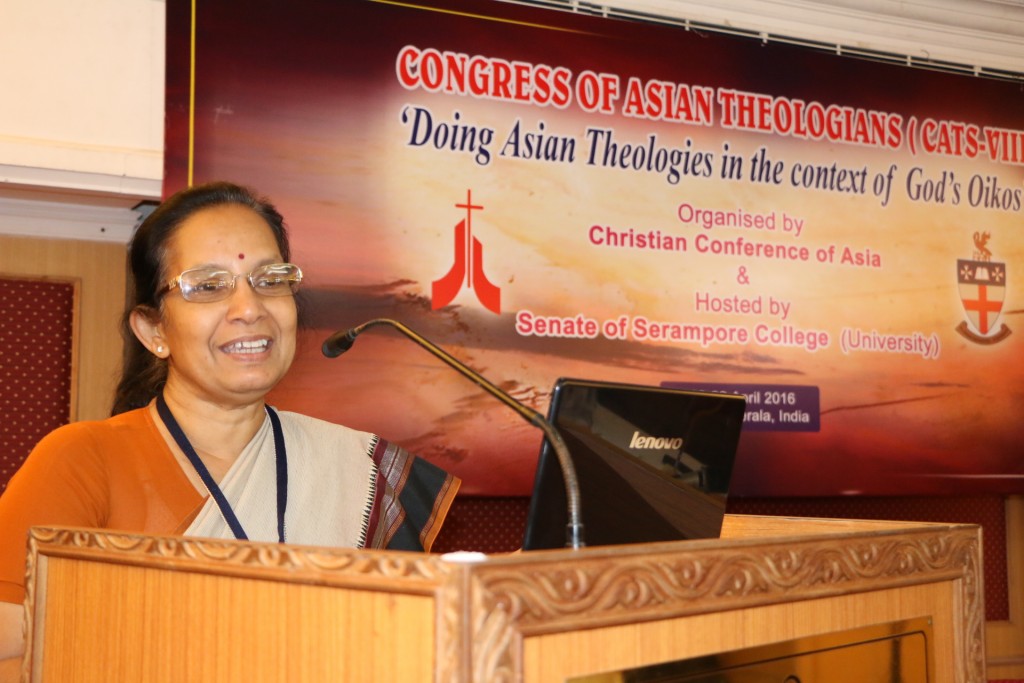Theologising should be 'credible exercise', Roman Catholic nun theologian tells CATS VIII
[caption id="attachment_1742" align="aligncenter" width="533"] Sr. Dr. Shalini Mulackal addressing the audience at eighth Congress of Asian Theologians (CATS)[/caption]
Sr. Dr. Shalini Mulackal addressing the audience at eighth Congress of Asian Theologians (CATS)[/caption]
“The challenge before the Asian theologians is to bridge the gap between theological articulations and their own life style”, told Sister Shalini Mulackal, an Indian Roman Catholic nun theologian and professor of theology to the participants of the eighth Congress of Asian Theologians (CATS).
While delivering a thematic address on the second day of CATS-VIII organised by the Christian Conference of Asia being held in Kochi, India, Sister Mulackal, President of Indian Theological Association, said, “the traditional ways of doing theology had no relevance for people at the grass roots without a minimum amount of suffering with the poor and theologising need to be a credible exercise”.
"Theology is never done once and for all. The way we understand God and God’s action in our history needs fresh understanding and fresh articulation. Theologising therefore is an ongoing task", added Sister Mulackal.
Reiterating the need for 're-articulation of theology in the emerging context', she lamented, "Poverty in Asia is still a glaring reality" while "there is a gradual moving away from the concerns of the poor in general in our Asian theologising."
Sister Mulackal further added, "It is heartening that new theologies have been developed in Asia based on people's struggle and more and more women doing theology from feminist perspective”.
Sharing a reflection on the story of the Caananite woman during the morning worship, Bishop Daniel Thiagarajah of the Jaffna diocese in Sri Lanka pointed out that Jesus emphasized the need "to cross the boundary between Jews and Gentiles".
“Boundaries that keep people in or out”, Bishop Thiagarajah said, “are to be broken”.
During a panel presentation on 'Overcoming religious intolerance and building communities of peace in Asia’, Prof. Joseph Deva Komar from Malaysia said, "Billboards may declare unity, however to suffer indignity is painful. To tolerate religious intolerance is becoming the chosen way".
Rev Yusak B Setyawan from Indonesia focused his presentation on the need "to recognise religious fundamentalism and terrorism as challenges in building up God's Oikos."
“The minimum standard in defining religion is to reinforce peace and promote a situation of living together in social harmony, justice and preserving human dignity", said Setyawan.
Dr. Santanu Patro, professor of religions and registrar of the Senate of Serampore College (University), India in his presentation called for “the need for churches to shed the 'non-responsive' attitude to growing atrocities against religious minorities by religious extremists”.
More than 100 participants are attending the CATS-VIII which will end on 22 April.










